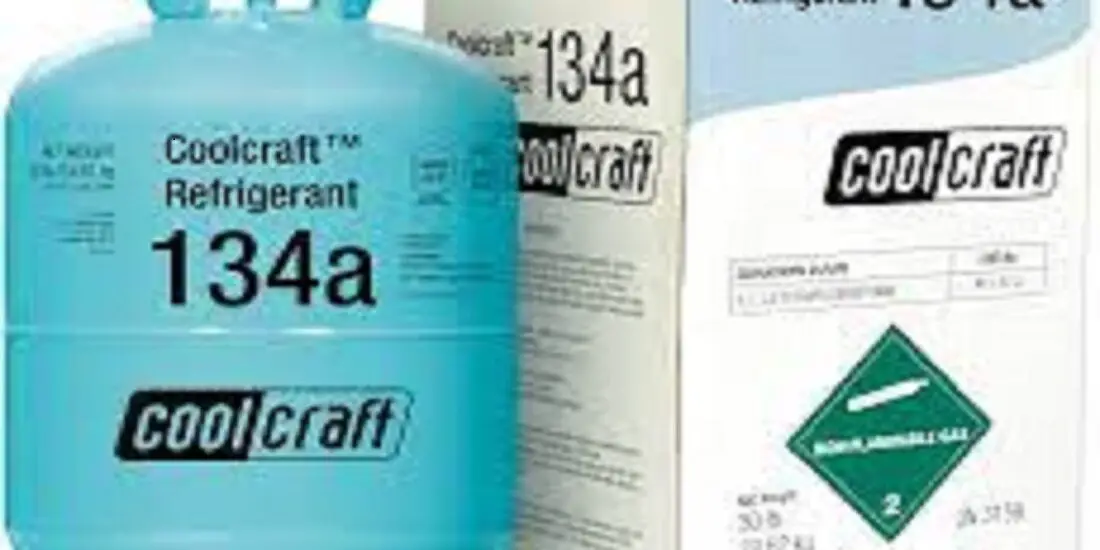Does a refrigerant go bad? It’s a question that’s been nagging you, probably during those DIY sessions in your garage. Well, it’s high time we shoo away that nagging thought. In this article, we’ll touch upon the basics of refrigerants, explore their shelf life, and even delve into their stability and quality over time. Buckle up for an enlightening ride!

Table of Contents
Understanding Refrigerants
Before we get to the crux of the matter, let’s take a step back and understand what refrigerants are and why they matter. After all, knowledge is power, isn’t it?
What is a Refrigerant?
A refrigerant, in simplest terms, is the elixir of your cooling systems. It’s a specially formulated fluid designed to absorb and disperse heat. Without it, your air conditioners, refrigerators, and freezers would be about as useful as a chocolate teapot. So, in essence, a refrigerant is the lifeblood of your cooling system, continuously circulating and keeping things nice and cold.
Common Types of Refrigerants
Just like there are many fish in the sea, there are various types of refrigerants. From the traditional R-22 to the reliable R-134a and the contemporary R-410A, there’s a long list. Each of these refrigerants has unique properties and applications, making them suited to specific types of cooling systems. Remember, not all refrigerants are created equal, and what works for one system might not work for another!
Shelf Life of Refrigerants
Now that we know what refrigerants are, it’s time to tackle the big question: do they expire? Let’s find out!
Does Refrigerant Expire?
Well, it’s a bit complicated. Technically, refrigerants don’t have a set expiration date. However, their quality and efficiency can be influenced by their storage conditions. Just like a fine wine can turn into vinegar if not stored properly, a refrigerant too can lose its effectiveness if stored under improper conditions. Extreme temperatures and contamination are the biggest culprits here, so always ensure your refrigerant is stored properly.
Signs of Bad or Expired Refrigerant
Wondering how to tell if a refrigerant has gone bad? There’s no definitive way to tell just by looking at it. However, if your cooling system isn’t performing as expected or there’s a strange odor, it could be a sign that your refrigerant isn’t at its best. Another clue might be the build-up of ice on the coils of your air conditioner or fridge – not exactly the kind of ice you’d want on a hot day!
To read more in-depth articles on refrigerants, click here: Articles on Refrigerants: The Ultimate Guide to Understanding Them
Refrigerant Stability and Quality over Time
Okay, we’ve covered storage. But what about the stability and quality of a refrigerant over time? Let’s discuss that next.
Factors Affecting Refrigerant Quality
Several factors can affect the quality of a refrigerant over time. This includes variations in temperature, shifts in pressure, and potential contamination. It’s a bit like a pot of soup – leave it out on the counter for too long, and it won’t be the delicious meal you hoped for. Similarly, exposure to adverse conditions can diminish the effectiveness of your refrigerant.
Can Refrigerant Go Bad in the System?
The question isn’t so much whether the refrigerant can go bad in the system, but rather if system-related issues can affect its effectiveness. Issues like leaks or contamination can severely hamper the refrigerant’s performance. Imagine running a marathon with a pebble in your shoe – it’s not the running that’s the problem, it’s the darn pebble!
Safe Handling and Disposal of Old Refrigerants
Finally, let’s talk about the appropriate ways to handle and dispose of old or potentially bad refrigerants.
How to Handle Old Refrigerants
Handling old refrigerants requires caution. Always use the right protective gear, like gloves and goggles, and avoid direct contact with the skin or eyes. Remember, even though the refrigerant might be old, it can still cause harm if mishandled. When in doubt, always refer to the manufacturer’s instructions or consult with a professional.
Proper Disposal of Refrigerants
Disposing of refrigerants isn’t as simple as tossing the canister in the trash. Most localities have specific regulations regarding the safe disposal of old or bad refrigerants. It’s always best to check with your local waste disposal facility or an HVAC professional. Remember, proper disposal isn’t just about safety, it’s also about protecting our environment!
Conclusion – Does a Refrigerant Go Bad?
So, to revisit our original question – does a refrigerant go bad? Not exactly, but its quality and performance can be affected by a myriad of factors, from storage conditions to system-related issues. It’s always important to ensure proper storage, be vigilant for any signs of system problems, and handle and dispose of refrigerants safely. In doing so, you’ll ensure that your cooling systems continue to perform at their best, providing you with the comfort you need.